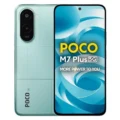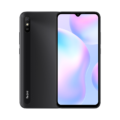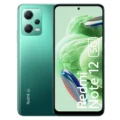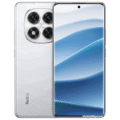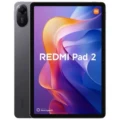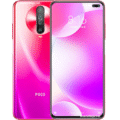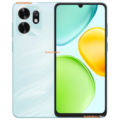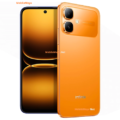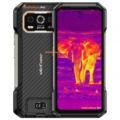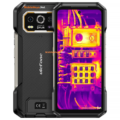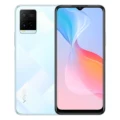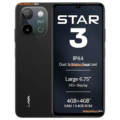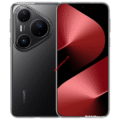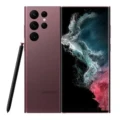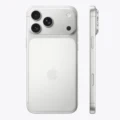Price List: Under Tk.5,000 | Tk.5001-10000 | Tk.10001-15000 | Tk.15001-20000 | Tk.20001-30000 | Tk.30001-40000 | More Mobiles
- Home
- All Mobile
- Xiaomi
- Xiaomi Poco Pad X1
Xiaomi Poco Pad X1
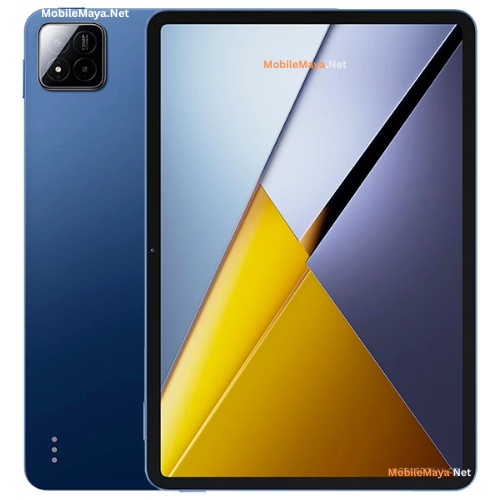


Specifications
Price in Bangladesh
| Expected Price | Coming soon |
General
| Device Type | Tablets |
| Announced | November, 2026 |
| Released | February, 2026 |
| Status | Available |
Hardware & Software
| Operating System OS => Every computer system run on a base software called Operating System (OS). Operating System controls all basic operations of the computer (such as smartphone, PDAs, tablet computers and other handheld devices). The Operating System allows the user to install and run third party applications (apps), apps are used to add new functionality to the device. | Android |
| OS Version | V15 |
| User Interface UI or user interface of a device is the look and feel of the on-screen menu system. How it works, its color scheme, how it responds to button presses, all of these things are part of the user interface. | HyperOS 2 |
| Chipset Chipset is a group of integrated circuits designed to perform one or a more dedicated functions, often with real time computing constraints, Popular smartphones are equipped with more advanced embedded chipsets that can do many different tasks depending on their programming. | Qualcomm SM7635-AC Snapdragon 7s Gen 4 (4 nm) |
| CPU CPU (Central Processing Unit) mostly known as processors, CPU processes instructions in order to carry out certain functions that make your device operate properly. Processors are often described as the brain of computers, smartphones and tablets, Smartphones and tablets rely on processors to carry out their every task, Processors are an incredibly important factor in selecting any type of computing device, including your smartphone. | Octa-core (1x2.7 GHz Cortex-A720 & 3x2.4 GHz Cortex-A720 & 4x1.8 GHz Cortex-A520) |
| GPU GPU (Graphics Processing Unit) is a single-chip processor designed to rapidly manipulate and alter memory to accelerate the creation of images in a frame buffer intended for output to a display, This includes things such as lighting effects, object transformations, and 3D motion. | Adreno 810 |
| RAM (Memory) RAM (Random Access Memory) is a type of computer memory that can be accessed randomly, any byte of memory can be accessed without touching the preceding bytes that allows information to be stored and accessed quickly from random locations. RAM is the most common type of memory found in computer systems, smartphones, tablets and other electronic devices. | 8 GB |
Design
| Dimensions | 279.8 x 181.7 x 7.5 mm (11.02 x 7.15 x 0.30 in) |
| Weight | 610 g (1.34 lb) |
| Colors |
Gray, Blue |
| Build Material | Glass front, aluminum frame, aluminum back |
Display
| Display Type Display Technology => A number of display technologies and types used in mobile phones => TFT (Thin Film Transistor), IPS (In-Place Switching), OLED (Organic Light Emitting Diode), AMOLED (Active-Matrix Organic Light-Emitting Diode), Super AMOLED (an even advanced version of AMOLED), Resistive Touchscreen (Resistive touchscreens contain two layer of conductive material with a very small gap between them which acts as a resistance), Capacitive Touchsceen (Capacitive touchscreen technology consists of a layer of glass coated with a transparent conductor) | IPS LCD |
| Size | 12.1 inches, 424.5 cm2 (~83.5% screen-to-body ratio) |
| Resolution | 1600 x 2560 pixels, 16:10 ratio (~249 ppi density) |
| Display Colors Display Colors is refers to the number of different shades of colors that the screen is capable of displaying => 64K colors, 256K colors and 16 million colors, Obviously 16M is highest available range of colors and better than others. | 1B colors |
| Brightness | 600 nits (HBM) |
| Refresh Rate | 120Hz |
| HDR 10 / HDR+ support |
Rear Camera
| Camera Setup | Single |
| Main Camera | 8 MP, f/2.0, (wide), 1/4.0", 1.12µm |
| OIS | |
| Flash Flash Light => There is commonly two types of flash lights are used in camera mobile phones, LED Flash (LED flash offers lower power consumption with drive circuitry that takes up very little room, LEDs can be strobed faster than any other light source), Xenon Flash (xenon flash produces an extremely intense full-spectrum white light for a very short duration) | LED flash |
| Video | 1080p@30fps |
Front Camera
| Camera Setup | Single |
| Secondary |
8 MP, f/2.3, (wide), 1/4.0", 1.12µm |
| Camera Features | HDR |
| Video | 1080p@30fps |
Battery
| Battery Type Battery Type => Cell phones run on various kinds of batteries depending on the manufacturer, phone size or shape and features. There are basically four types of cell phone batteries => Lithium Polymer, Lithium Ion, Nickel Metal Hydride and Nickel Cadmium. | Li-Ion (Lithium Ion) |
| Placement | Non-removable |
| Capacity Battery Capacity is a measure (typically in Amp-hr) of the charge stored by the battery, and is determined by the mass of active material contained in the battery. The battery capacity represents the maximum amount of energy that can be extracted from the battery under certain conditions. | 12000 mAh |
| Quick Charging | 33W wired, PD3.0, QC3+ |
| USB Type-C | USB Type-C 2.0, OTG |
Storage
| Storage Capacity | 256 GB |
| USB OTG |
Network
| 2G Network |
N/A |
| 3G Network |
N/A |
| 4G Network |
N/A |
| SIM SIM (Subscriber Identity Module) is a small card that contains mobile network subscriber's account information. This allows the phone using the card to attach to a mobile network. The SIM card is most commonly associated with GSM and UMTS mobile networks. Moving a SIM card from one phone to another allows a subscriber to switch mobile phones without having to contact their mobile network carrier. SIM cards can also be used by a phone to store limited amounts of data, such as phone numbers and text messages. | Standard SIM |
Data
| GPRS GPRS (General Packet Radio Service) is a packet oriented mobile data service on the 2G and 3G cellular communication system's global system for mobile communications (GSM), Generally, GPRS is used for the purpose of wireless data transfer, such as sharing pictures and videos or browsing the Internet via a mobile phone connection. | |
| EDGE EDGE (Enhanced Data GSM Environment) is a wireless network technology generally considered the next step in the 2G network offers data transfer rates up to four times faster than ordinary GSM networks, Generally, EDGE is used for the purpose of wireless data transfer, such as sharing pictures and videos or browsing the Internet via a mobile phone connection. | |
| Speed | No |
| Web Browser Web Browser => a web browser is a software application used to locate, retrieve and display content on the World Wide Web, including Web pages, images, video and other files, The primary function of a web browser is to render HTML, the code used to design or markup webpages. | HTML5 |
Messaging
| SMS SMS (Short Messaging Service) is a text messaging service component of phone, Web, or mobile communication systems. It uses standardized communications protocols to allow mobile phone devices to exchange short text messages over the networks. | Yes |
| MMS MMS (Multimedia Messaging Service) is a standard way to send messages that include multimedia content (audio clips, video clips and images) to and from mobile phones over wireless networks using the WAP protocol. | |
| Email Email (Electronic Mail) is a system for receiving, sending, and storing electronic messages, Similar to a letter, email is text messages that may contain files, images, or other attachments sent via the internet to a recipient by using applications and software prograps. An email address is required to receive email, and that address is unique to the user. | Yes |
| IM IM (Instant Messaging) is an exchange of text messages through a software application, it enable you to create a kind of private chat room with another individual in order to communicate in real time over the Internet. | Yes |
Connectivity
| Bluetooth Bluetooth is a wireless communications technology for exchanging data between mobile phones, headsets, computers and other network devices over short distances without wires, Bluetooth technology was primarily designed to support simple wireless networking of personal consumer devices. | 5.4, A2DP, LE, aptX HD, aptX Adaptive |
| Wi-fi Wi-Fi is a popular wireless networking technology using radio waves to provide high-speed network connections that allows devices to communicate without cords or cables, Wi-Fi is increasingly becoming the preferred mode of internet connectivity all over the world. | Wi-Fi 802.11 a/b/g/n/a/6, dual-band, Wi-Fi Direct |
| Wi-fi Hotspot | |
| Infrared Infrared connectivity is an old wireless technology used to connect two electronic devices. It uses a beam of infrared light to transmit information and so requires direct line of sight and operates only at close range. | |
| USB | USB Type-C 2.0, OTG |
| GPS GPS The Global Positioning System is a satellite-based radio navigation system, GPS permits users to determine their position, velocity and the time 24 hours a day, in all weather, anywhere in the world, In order to locate your position, your device or GPS receiver must have a clear view of the sky. | No |
| NFC NFC (Near field communication) is a set of standards for smartphones and similar devices to establish peer-to-peer radio communications with each other by touching them together or bringing them into proximity, usually no more than a few inches. |
Media
| FM Radio | No |
| Loudspeaker | Yes, with stereo speakers (4 speakers) |
| 3.5mm Jack | Yes |
Sensors & Security
| Fingerprint Sensor |
More
| Made By | China |
Performance Tests
PROS
- Premium aluminum body
- 144Hz high-refresh IPS display
- Powerful Snapdragon 7+ Gen 3 chip
- Large 8850mAh battery
- Excellent stereo speakers
- Latest Android 15 + HyperOS 2
- 4K rear video recording
CONS
- No SIM or cellular network support
- No GPS
- No 3.5mm headphone jack
- Camera performance is basic for the price
Xiaomi Poco Pad X1 Price in Bangladesh
The Xiaomi Poco Pad X1 is expected to launch in Bangladesh soon, and its price is likely to start from BDT 35,000+ depending on storage options. Positioned as a mid-range Android tablet, it offers a premium metal build, a large 11.2-inch high-refresh-rate display, a Snapdragon 7+ Gen 3 chipset, and a massive 8850mAh battery — all at an accessible price point.
Its standout features include a sleek aluminum design, a sharp 3:2 ratio display with 144Hz refresh rate, impressive performance for multitasking and gaming, and the latest Android 15 with HyperOS 2.
Price & Variants
| RAM & Storage | Price (BDT) | Status |
|---|---|---|
| 8GB + 256GB | Coming Soon | Upcoming |
| 8GB + 512GB | Coming Soon | Upcoming |
Xiaomi Poco Pad X1 Specifications
The Xiaomi Poco Pad X1 is a feature-rich mid-range tablet equipped with Qualcomm’s capable Snapdragon 7+ Gen 3 chip, a premium metal body, and a vibrant 11.2″ IPS LCD panel.
| Feature | Details |
|---|---|
| Model Name | Xiaomi Poco Pad X1 |
| Release Date | November 2025 |
| Market Availability | Coming Soon |
| Official Price | Not announced |
| RAM & Storage | 8GB + 256GB / 8GB + 512GB |
Display and Design
The Poco Pad X1 features a 11.2-inch IPS LCD display with a crisp 2136 × 3200 pixel resolution and a tall 3:2 aspect ratio that’s ideal for reading, browsing, and productivity. With 144Hz refresh rate, 68 billion colors, HDR support, and 800 nits brightness, visuals look buttery smooth and vibrant.
In terms of build, Xiaomi has crafted the tablet with a glass front, aluminum frame, and aluminum back, giving it a sleek and premium feel. Despite its large display, the tablet remains slim at 6.2mm and weighs around 500g. Available in Gray and Blue, it offers a clean and modern aesthetic.
Performance and Processor
Powered by the Qualcomm Snapdragon 7+ Gen 3 (4nm) chipset and Adreno 732 GPU, the Poco Pad X1 brings strong performance for a mid-range tablet. Its octa-core CPU includes high-efficiency Cortex-A520 cores and a powerful Cortex-X4 prime core for fast response times.
With 8GB RAM and storage options up to 512GB, users get smooth multitasking, responsive app switching, and comfortable gaming performance. Heavy apps and graphics-intensive tasks run efficiently thanks to HyperOS 2 optimizations. Storage expansion isn’t listed, but USB OTG support is available for external drives.
Camera and Video
The rear camera setup includes a 13MP wide lens (f/2.2) with PDAF, HDR, and LED flash. While tablets aren’t primarily for photography, this camera can comfortably capture documents, daily moments, and decent-quality photos. It also supports 4K@30fps and 1080p@30/60fps video recording.
On the front, the 8MP selfie camera performs well for video calls and selfies, delivering 1080p@30fps video with HDR support for better dynamic range.
Battery and Charging
Packed with a massive 8850mAh Li-Ion battery, the Poco Pad X1 offers all-day usage whether you’re watching movies, browsing, or working. The tablet supports 45W wired fast charging with PD3.0 and QC3+ standards, achieving a full charge in around 1 hour 20 minutes. Combined with the efficient 4nm chipset, users can expect excellent power efficiency.
Connectivity and 5G Support
The device is Wi-Fi only, with no 2G/3G/4G/5G support, making it ideal for home, office, and school environments. It includes:
- Dual-band Wi-Fi 802.11 a/b/g/n/ac/6e
- Bluetooth 5.4 with LHDC 5
- USB Type-C 3.2 with accessory connector
- No GPS, NFC, or SIM card connectivity
Additional Features
The Poco Pad X1 comes with Android 15 paired with HyperOS 2, giving users a clean, feature-rich software experience. Stereo speakers (four speakers) provide immersive sound quality, and although there’s no 3.5mm headphone jack, wireless audio is excellent with LHDC support.
Key features include:
- Stereo speaker setup (4 speakers)
- USB OTG support
- Premium metal design
- Advanced cooling and performance tuning via HyperOS 2
Reason to Buy
- Premium aluminum build at a mid-range price
- Large 11.2-inch high-resolution, 144Hz display
- Powerful Snapdragon 7+ Gen 3 chipset
- Massive 8850mAh battery with 45W fast charging
- Great for entertainment, studying, and productivity
- Latest Android 15 + HyperOS 2 experience
- Smooth multitasking with 8GB RAM
- 4-speaker stereo audio for immersive media
Verdict
The Xiaomi Poco Pad X1 stands out as one of the most promising mid-range Android tablets in 2025. With its beautiful 144Hz display, powerful Snapdragon chipset, sleek metal body, and large battery, it offers excellent value for students, casual gamers, content consumers, and professionals needing a reliable tablet for everyday tasks. If you want a premium feel without the flagship price tag, the Poco Pad X1 is a strong contender.
FAQ
1. Is Xiaomi Poco Pad X1 good for gaming?
Yes. With Snapdragon 7+ Gen 3 and Adreno 732 GPU, it handles most modern games smoothly.
2. Does the Poco Pad X1 support a SIM card?
No, it is a Wi-Fi-only tablet.
3. Can I use a keyboard or stylus with this tablet?
Yes, it supports accessories via its USB-C accessory connector (compatibility may vary).
4. Is the display good for multimedia?
Absolutely. The 144Hz IPS panel with HDR and stereo speakers makes it excellent for movies and YouTube.
5. Does it support fast charging?
Yes, it features 45W wired fast charging.
Alternatives to Xiaomi Poco Pad X1
- Samsung Galaxy Tab S9 FE+ (2024)
- Lenovo Tab P12 Pro (2024 refresh)
- Xiaomi Pad 7 (2025)
- Realme Pad X2 (2025)
These offer similar performance and display quality, depending on your budget.
User Reviews
Disclaimer Note
We do not guarantee that the information of this page is 100% accurate and up to date.

